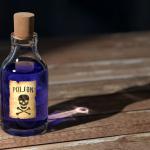Join our directors of bio-sciences and medicine, Cameron English and Dr. Chuck Dinerstein, as they break down these stories on episode 27 of the Science Dispatch podcast.
chemicals
The evidence is quite clear at this point. Properly used, pesticides do not pose a serious risk to human health or the environment.
The activists at Environmental Working Group (EWG) consistently butcher the science on a variety of consumer health issues.
The trace amounts of pesticides in food cannot harm you.
In October, a viral TikTok video urged viewers to buy an essential oil veg
Peer review, especially peer review of chemical safety/risk assessments, is under assault. Despite the fact that government agencies, industries, universities, NGOs and consulting groups recognize the added credibility that peer review bring
We have all heard the saying “Too much of a good thing.” This applies to foods, drinks and many kinds of activities. This saying also applies to chemicals we “hear” about in our daily news.
Toxicology, the study of poisons, is often thought of as a new discipline. It’s not. It has been around as long as people have been trying out different types of food, and using the occasional poisonous plant, or animal, to dispatch a rival.
Chemical phobia is a prevalent theme in today’s social media, and chemicals often written up in mainstream news outlets in negative terms. But have you ever stopped to think about the sources of this information? How many of the source
It's not a secret that the average person is scientifically illiterate. The question is, "Just how scientifically illiterate?" The answer is appalling.












